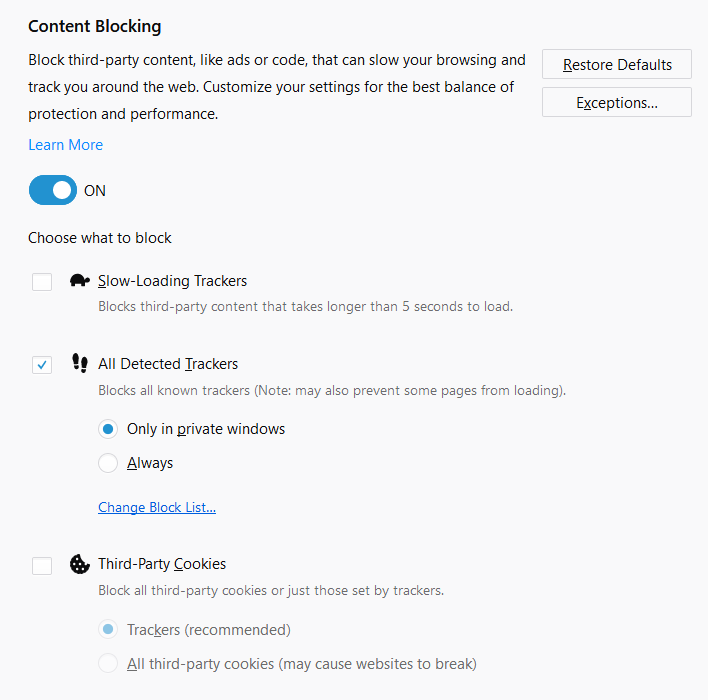Mozilla today announced that its Firefox browser will soon automatically block all attempts at cross-site tracking by default.
There’s three parts to this strategy. Starting with version 63, which is currently in testing in the browser’s nightly release channel, Firefox will block all slow-loading trackers (with ads being the biggest offender here). Those are trackers that take more than five seconds to load. Starting with Firefox 65, the browser will also strip all cookies and block all storage access from third-party trackers. In addition, Mozilla is also working on blocking cryptomining scripts and trackers that fingerprint users. As usual, the timeline could still change, depending on how these first tests work out.
“In the physical world, users wouldn’t expect hundreds of vendors to follow them from store to store, spying on the products they look at or purchase,” Mozilla’s Nick Nguyen writes today. “Users have the same expectations of privacy on the web, and yet in reality, they are tracked wherever they go. Most web browsers fail to help users get the level of privacy they expect and deserve.”

If you want to give these new features a try today, all you have to do is install the unstable Firefox Nightly release. There, in the privacy settings, you’ll find the new tracker blocking features under the “Content Blocking” header. Once you’ve turned that on, the browser will also walk you through how all of this works and highlights that some of the more aggressive settings may break a few sites.
In addition, Firefox’s private mode also uses the same kind of tracking protection already, as does Firefox for iOS.
Safari users, too, will have likely yawned while reading this. Apple, after all, already announced similar privacy features for its browser last year. The approach here is different, with Apple betting on machine learning and Firefox using more traditional block lists, but the intent is the same.
As Mozilla notes, the idea here is to give users choice. Sites can still ask for a user’s data but they’ll have to ask for consent before they get it. “Blocking pop-up ads in the original Firefox release was the right move in 2004, because it didn’t just make Firefox users happier, it gave the advertising platforms of the time a reason to care about their users’ experience. In 2018, we hope that our efforts to empower our users will have the same effect,” writes Nguyen.
from TechCrunch https://ift.tt/2MCZHwd








0 comments:
Post a Comment